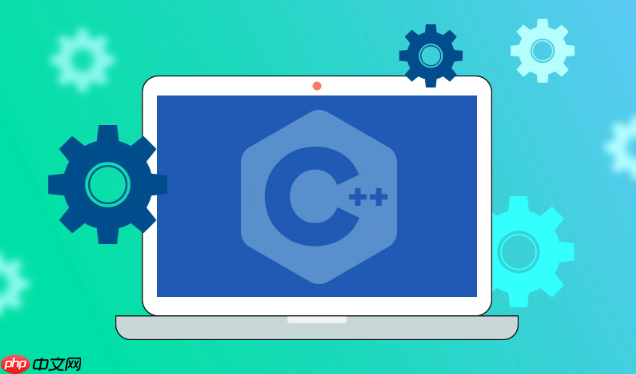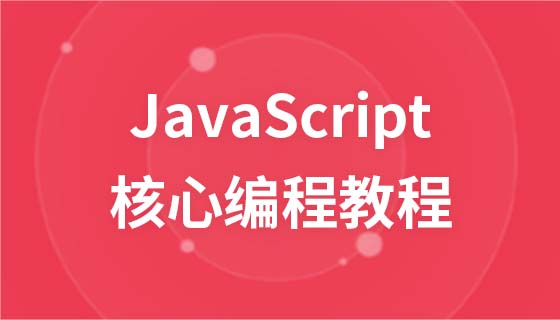#%#$#%@%@%$#%$#%#%#$%@_9e6df79f947a44c++8a2ba49c4428632a1实现泛型编程主要有三种方法:1. 使用void *指针,可指向任意类型数据但缺乏类型检查;2. 利用宏定义在编译时生成代码,但可读性和维护性较差;3. 采用c11的_generic关键字,根据表达式类型选择代码分支,类型安全且可读性好。其中,void指针需手动转换类型并运行时判断,宏定义通过预处理生成不同代码块,而_generic则在编译时确定类型,适用于结构体、指针等复杂类型,但无法处理运行时动态类型和类型推断,也不能支持函数重载。结合宏与_generic还可模拟类似c++模板的交换函数,增强类型检查能力。

C语言本身并没有像C++或Java那样直接支持泛型编程的特性。但我们可以通过一些技巧来模拟泛型,比如使用void *指针、宏定义或者C11引入的_Generic关键字。_Generic提供了一种在编译时根据表达式类型选择不同代码分支的方式,这在一定程度上实现了类似泛型的效果。

使用void *指针是一种比较常见的做法,它可以指向任何类型的数据,但需要手动进行类型转换,并且缺乏编译时的类型检查。宏定义则可以在编译时生成不同的代码,但可读性和维护性较差。_Generic关键字相对来说更加安全和易于维护。

*`void 指针:** 这是最传统的方式,通过void *` 可以指向任意类型的数据,然后在函数内部进行类型转换。但这种方式需要程序员自己维护类型信息,容易出错。
立即学习“C语言免费学习笔记(深入)”;

void generic_function(void *data, char type) {
if (type == 'i') {
int *int_ptr = (int *)data;
printf("Integer: %d\n", *int_ptr);
} else if (type == 'f') {
float *float_ptr = (float *)data;
printf("Float: %f\n", *float_ptr);
}
}
int main() {
int num = 10;
float pi = 3.14;
generic_function(&num, 'i');
generic_function(&pi, 'f');
return 0;
}这种方法的缺点是类型不安全,需要在运行时进行类型检查。
宏定义: 使用宏可以根据不同的类型生成不同的代码。
#define GENERIC_PRINT(data, type) \
if (type == int) { \
printf("Integer: %d\n", data); \
} else if (type == float) { \
printf("Float: %f\n", data); \
}
int main() {
int num = 10;
float pi = 3.14;
GENERIC_PRINT(num, int);
GENERIC_PRINT(pi, float);
return 0;
}宏定义的缺点是可读性差,调试困难,容易出错。
_Generic 关键字: C11 引入的 _Generic 关键字允许根据表达式的类型选择不同的代码。
#include <stdio.h>
#define generic_print(X) _Generic((X), \
int: printf("Integer: %d\n", X), \
float: printf("Float: %f\n", X), \
default: printf("Unknown type\n") \
)
int main() {
int num = 10;
float pi = 3.14;
char ch = 'A';
generic_print(num);
generic_print(pi);
generic_print(ch);
return 0;
}_Generic 关键字的优点是类型安全,代码可读性好。但它只能在编译时确定类型,无法处理运行时动态类型。
_Generic 的高级用法:如何处理复杂类型和自定义类型?_Generic 可以处理复杂类型,例如指针、结构体等。对于自定义类型,需要先定义类型,然后在 _Generic 中使用。
#include <stdio.h>
typedef struct {
int x;
int y;
} Point;
#define print_point(P) _Generic((P), \
Point: printf("Point: (%d, %d)\n", P.x, P.y), \
default: printf("Not a Point\n") \
)
int main() {
Point p = {10, 20};
int num = 10;
print_point(p);
//print_point(num); // 会编译错误,因为没有匹配的类型,如果想要兼容,需要添加default
return 0;
}对于指针类型,也可以使用 _Generic 来进行处理。
#include <stdio.h>
#define print_ptr(P) _Generic((P), \
int*: printf("Integer pointer\n"), \
float*: printf("Float pointer\n"), \
default: printf("Other pointer type\n") \
)
int main() {
int num = 10;
float pi = 3.14;
int *num_ptr = #
float *pi_ptr = π
print_ptr(num_ptr);
print_ptr(pi_ptr);
return 0;
}需要注意的是,_Generic 只能在编译时确定类型,因此无法处理运行时动态类型。
虽然C语言没有像C++那样的模板机制,但我们可以结合 _Generic 和宏定义来模拟类似的功能。这种方式虽然不如C++模板强大,但可以在一定程度上实现代码的复用。
例如,我们可以定义一个通用的交换函数:
#include <stdio.h>
#define SWAP(x, y, type) do { \
type temp = x; \
x = y; \
y = temp; \
} while (0)
int main() {
int a = 10, b = 20;
float x = 3.14, y = 2.71;
SWAP(a, b, int);
SWAP(x, y, float);
printf("a = %d, b = %d\n", a, b);
printf("x = %f, y = %f\n", x, y);
return 0;
}这种方式的缺点是需要手动指定类型,并且缺乏编译时的类型检查。
更进一步,可以结合 _Generic 来进行类型检查:
#include <stdio.h>
#define SWAP(x, y) _Generic((x), \
int: _Generic((y), \
int: __swap_int(x, y), \
default: __type_error() \
), \
float: _Generic((y), \
float: __swap_float(x, y), \
default: __type_error() \
), \
default: __type_error() \
)
void __swap_int(int a, int b) {
int temp = a;
a = b;
b = temp;
printf("Swapped integers\n");
}
void __swap_float(float a, float b) {
float temp = a;
a = b;
b = temp;
printf("Swapped floats\n");
}
void __type_error() {
printf("Type error: incompatible types\n");
}
int main() {
int a = 10, b = 20;
float x = 3.14, y = 2.71;
//char c = 'A', d = 'B';
SWAP(a, b);
SWAP(x, y);
//SWAP(a, x); // 会输出 Type error
printf("a = %d, b = %d\n", a, b);
printf("x = %f, y = %f\n", x, y);
return 0;
}这个例子展示了如何使用 _Generic 进行类型检查,并在类型不匹配时输出错误信息。
_Generic 的局限性:有哪些情况无法使用?尽管 _Generic 提供了一定的泛型能力,但它也有一些局限性:
_Generic 只能在编译时根据表达式的类型选择不同的代码分支,无法处理运行时动态类型。这意味着它不能用于处理需要在运行时才能确定类型的场景。_Generic 需要显式地指定类型,无法像C++模板那样进行类型推断。_Generic 的代码可能会变得难以阅读和维护。总的来说,_Generic 是一种在C语言中模拟泛型编程的有效手段,但它也有一些局限性。在选择使用 _Generic 时,需要权衡其优缺点,并根据具体的应用场景进行选择。
以上就是c语言中的泛型编程怎么实现 _Generic关键字如何使用的详细内容,更多请关注php中文网其它相关文章!

每个人都需要一台速度更快、更稳定的 PC。随着时间的推移,垃圾文件、旧注册表数据和不必要的后台进程会占用资源并降低性能。幸运的是,许多工具可以让 Windows 保持平稳运行。




Copyright 2014-2025 https://www.php.cn/ All Rights Reserved | php.cn | 湘ICP备2023035733号